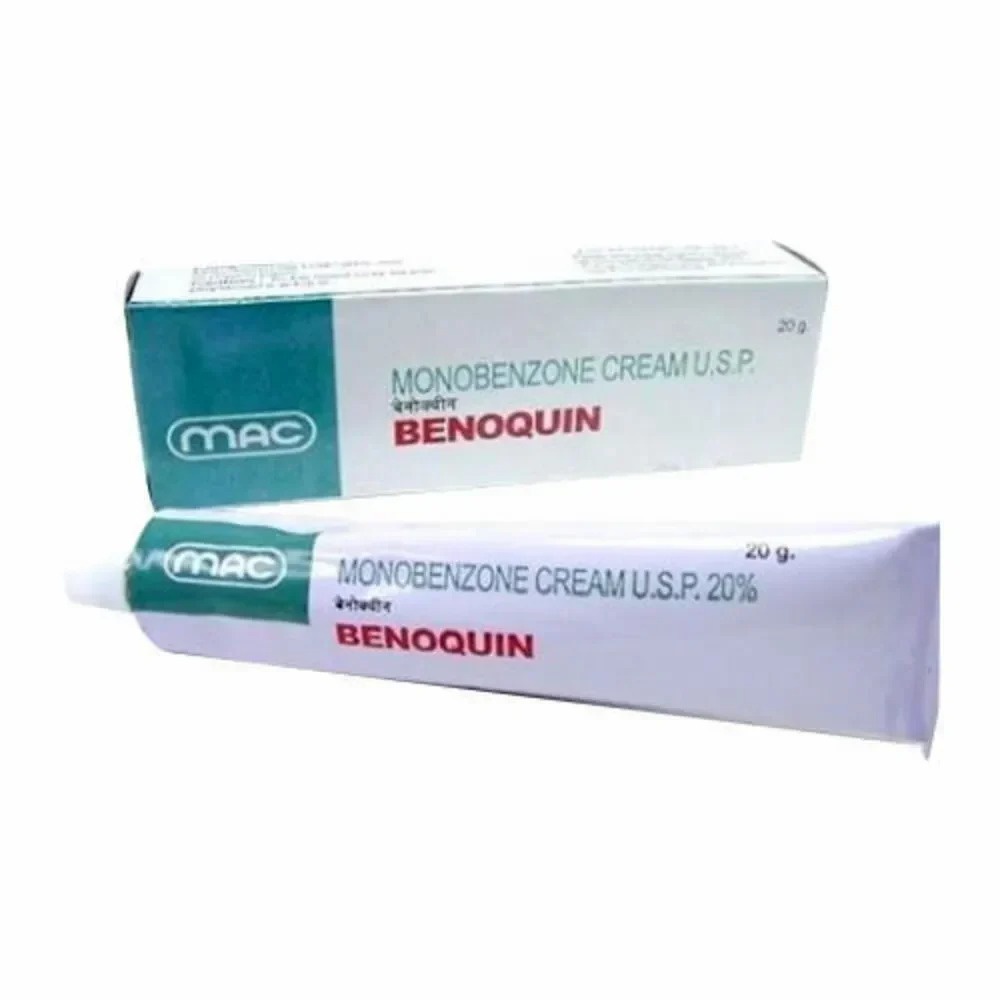Benoquin Cream is a topical medication used to treat conditions such as vitiligo, a skin disorder characterized by loss of pigment. It contains the active ingredient monobenzone, which works by decreasing melanin production in the skin, thereby lightening the affected areas. While Benoquin Cream can be effective in treating vitiligo, its effectiveness can be influenced by various factors, including hormonal changes in the body.
Understanding Benoquin Cream
Benoquin Cream is a depigmenting agent that is applied directly to the skin. It is commonly used to treat vitiligo, a condition where the skin loses its pigment cells, resulting in white patches. The cream works by inhibiting the enzyme tyrosinase, which is involved in the production of melanin, the pigment responsible for skin color.
Hormones and Skin Pigmentation
Hormones play a crucial role in regulating various bodily functions, including skin pigmentation. Hormonal changes, such as those occurring during puberty, pregnancy, or menopause, can affect melanin production in the skin. For example, during pregnancy, increased levels of estrogen and progesterone can lead to darkening of the skin in certain areas, a condition known as melasma.
Hormonal Influence on Benoquin Cream
Hormonal changes can impact the effectiveness of Benoquin Cream treatment in several ways. Firstly, fluctuations in hormone levels can affect melanin production, altering the rate at which the skin responds to the depigmenting effects of the cream. Additionally, hormonal imbalances can exacerbate skin conditions such as vitiligo, making it more challenging to achieve desired results with treatment.
Hormonal Changes and Treatment Response
Changes in hormone levels can also affect the skin's response to Benoquin Cream treatment. For example, individuals experiencing hormonal fluctuations may find that their skin becomes more sensitive to the cream, leading to irritation or discomfort. Conversely, hormonal changes that increase melanin production may result in reduced effectiveness of the cream, as the skin produces pigment at a faster rate than it can be removed.
Optimizing Treatment for Hormonal Influence
To optimize the effectiveness of Benoquin Cream treatment in the presence of hormonal influence, it is essential to consider various factors. This may include adjusting the dosage or frequency of application based on hormonal fluctuations, as well as incorporating additional treatments or skincare regimens to address specific concerns.
Managing Hormonal Imbalances
In addition to optimizing treatment, managing hormonal imbalances is crucial for overall skin health. This may involve lifestyle changes such as maintaining a balanced diet, getting regular exercise, and managing stress levels. In some cases, hormonal imbalances may require medical intervention, such as hormone replacement therapy or prescription medications.
Side Effects and Risks
Like any medication, Benoquin Cream carries potential side effects and risks. Common side effects may include skin irritation, redness, or burning sensation at the application site. In rare cases, more severe side effects such as allergic reactions or skin discoloration may occur. It is essential to consult a healthcare professional if you experience any adverse reactions to the medication.
Conclusion
hormones can have a significant influence on the effectiveness of Benoquin Cream treatment for conditions such as vitiligo. Understanding how hormonal changes affect skin pigmentation and treatment response is essential for optimizing outcomes and managing potential side effects. By considering hormonal influence and implementing appropriate strategies, individuals can achieve better results with Benoquin Cream therapy.


No comments yet